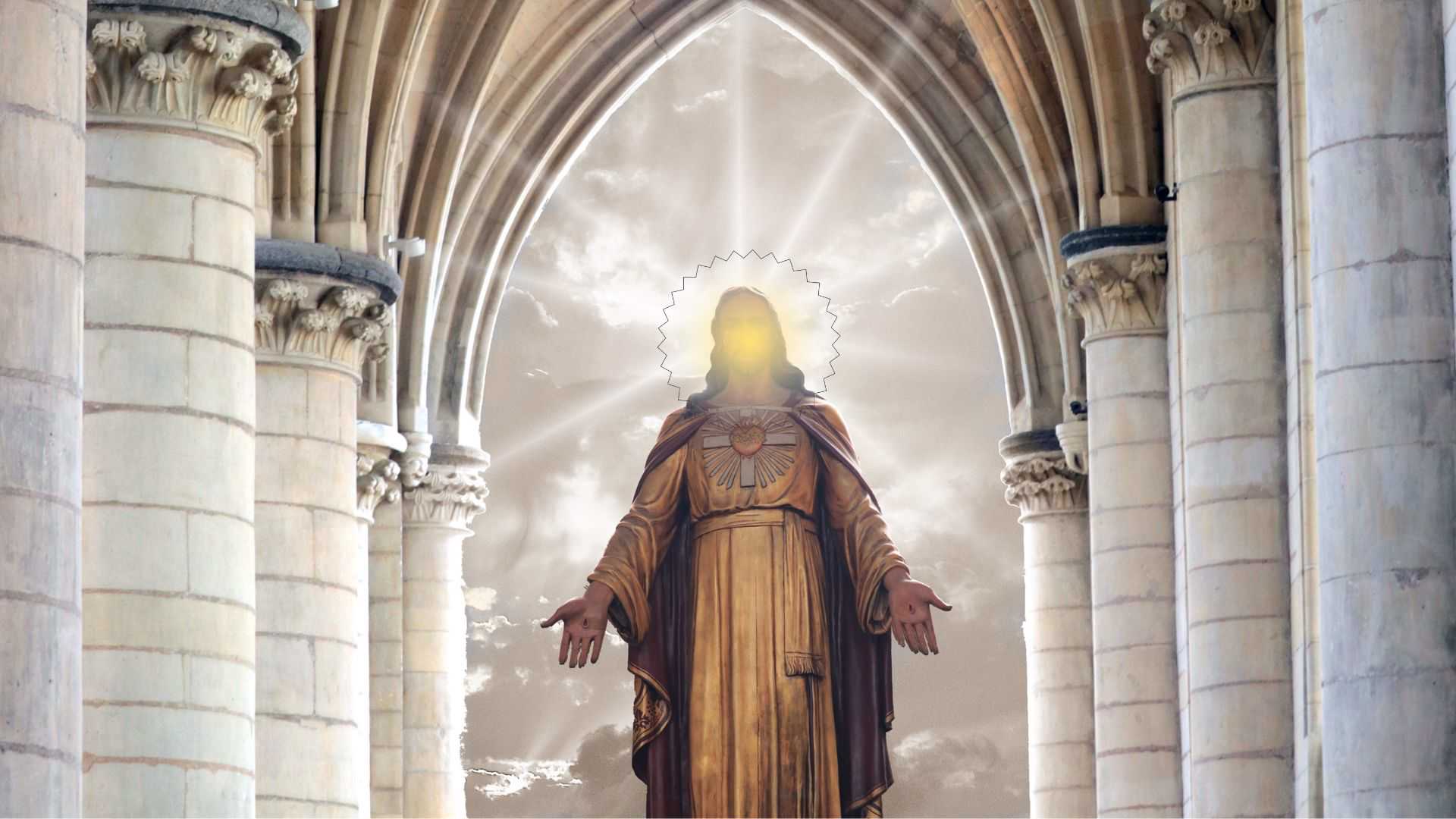The teachings of Jesus (Isa A.S.) have had a profound impact on the course of human history, influencing billions of believers across different cultures and religions. While Christianity considers Jesus (PBUH) as the Son of God, an interesting perspective emerges when we explore the common ground between Jesus (PBUH), the central figure in Christianity, and the teachings of Islam. This article aims to delve into the notion that Jesus is the way to Allah, the way to Islam, reflecting on the verse, “I am the way and the truth and the life. No one comes to the Father except through me” (John 14:6) from the Bible.
Jesus as the Way to Allah:
In the Bible, specifically in the Gospel of John, Jesus (PBUH) declares, “I am the way and the truth and the life. No one comes to the Father except through me” (John 14:6). This verse is often cited to emphasize the exclusivity of the Christian path to salvation. However, when viewed through the lens of Islam, particularly the concept of Tawhid (the oneness of God), a nuanced understanding emerges.
Islamic teachings assert the oneness of God, Allah SWT. The Quran affirms the concept of Tawhid, emphasizing the undivided nature of God. Surprisingly, Jesus’ (PBUH) statement aligns with the Islamic principle that there is only one way to God. In Islam, following the path of righteousness and submitting to the will of Allah is the way to attain salvation. and Allah sent Prophets and messengers to lead the misguided people back to Allah. Jesus (PBUH), in proclaiming himself as the way, may be seen as pointing towards the fundamental truth that obedience to God’s commandments is the path to salvation, an idea shared by both Christianity and Islam.
Jesus’ Invitation to Worship the One True God:

One of the central tenets of Islam is the worship of the one true undivided God, Allah SWT. Jesus (PBUH), in his teachings, consistently emphasized the worship of the Almighty and did not claim divinity for himself. He never said he was God or son of God. In the Bible, Jesus (PBUH) is reported to have said, “Worship the Lord your God, and serve him only” (Matthew 4:10). This echoes the core message of Islam, emphasizing the exclusive worship of Allah.
Moreover, Jesus’ (PBUH) teachings align with the Islamic understanding of God as merciful and compassionate. In both the Bible and the Quran, there is an emphasis on God’s love and forgiveness for those who repent and turn to Him. This shared emphasis on God’s mercy serves as a bridge between the teachings of Jesus and the principles of Islam.
The Absence of Jesus’ Claim to Divinity:
Contrary to the later Christian doctrine of the Trinity, where Jesus (PBUH) is considered part of a triune Godhead, Islamic teachings maintain the absolute oneness of God. The Quran explicitly rejects any notion of partners or associates with Allah. In this context, Jesus’ (PBUH) teachings become intriguing when examined without the theological developments that occurred after his time.
Jesus (PBUH), as presented in the Bible, never explicitly claimed to be God. Instead, he consistently referred to God as a separate entity. In the Gospel of John, Jesus says, “I am ascending to my Father and your Father, to my God and your God” (John 20:17). This declaration of a shared God points to a monotheistic understanding that aligns with the Islamic concept of Tawhid.
Every Prophet as the Way to God:
The Quran acknowledges the role of numerous prophets throughout history, all of whom were sent to guide humanity back to the worship of the one true God. The Quran states, “And We certainly sent into every nation a messenger, [saying], ‘Worship Allah and avoid Taghut [false gods]'” (Quran 16:36). Each prophet, according to Islamic belief, was a guide and a way to God in his respective time.
Jesus (PBUH), in the context of this broader prophetic tradition, serves as a significant figure in Islam. Muslims believe in Jesus (PBUH) as a prophet and messenger of Allah, similar to other revered figures such as Moses (PBUH), Abraham (PBUH), and Prophet Muhammad (PBUH). The essence of their message was consistent – to call people to monotheism, to worship the one true God, and to live a righteous life.
Conclusion:
In exploring the idea that Jesus (PBUH) is the way to Allah, the way to Islam, we find intriguing parallels between the teachings of Jesus (PBUH) in the Bible and the principles of Islam. The verse, “I am the way and the truth and the life. No one comes to the Father except through me” (John 14:6), takes on a broader significance when viewed in light of the oneness of God emphasized in Islam.
Jesus’ (PBUH) invitation to worship the one true undivided God, his consistent emphasis on righteous living, and his lack of explicit claims to divinity align with the core tenets of Islam. Moreover, the understanding that every prophet was a way to God in his time, preaching the belief in one God, reinforces the shared monotheistic foundation between Christianity and Islam.
In a world where religious understanding is often clouded by divisive narratives, exploring the common ground between faiths can foster greater harmony and mutual respect. Recognizing the shared principles of monotheism and the call to righteous living in both Christianity and Islam can serve as a bridge for interfaith dialogue, promoting a deeper understanding of the spiritual connections that bind humanity across different religious traditions.
Read more Islamic Blogs or Follow us on social media for daily Islamic reminders.






